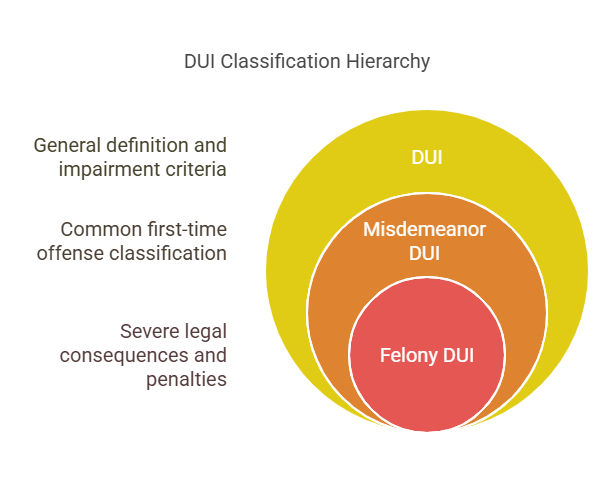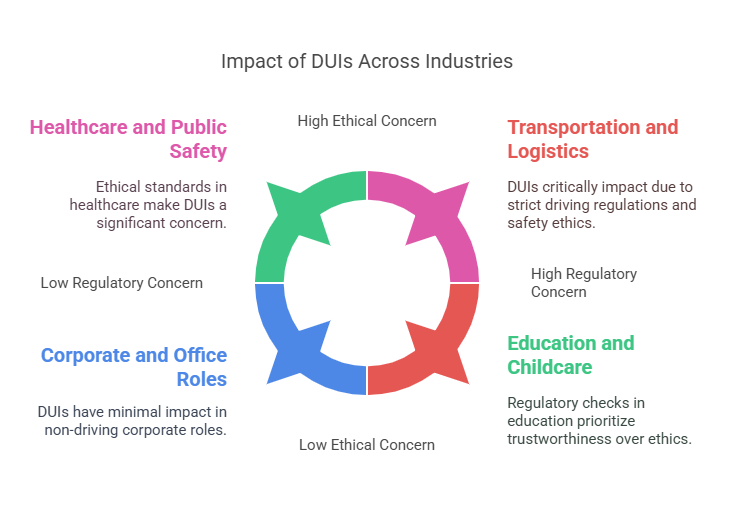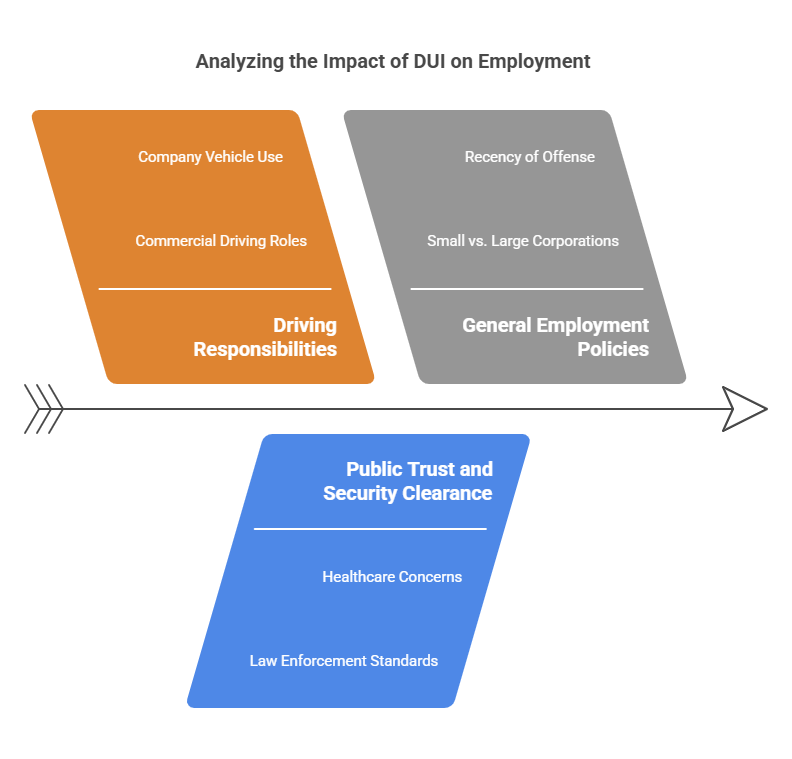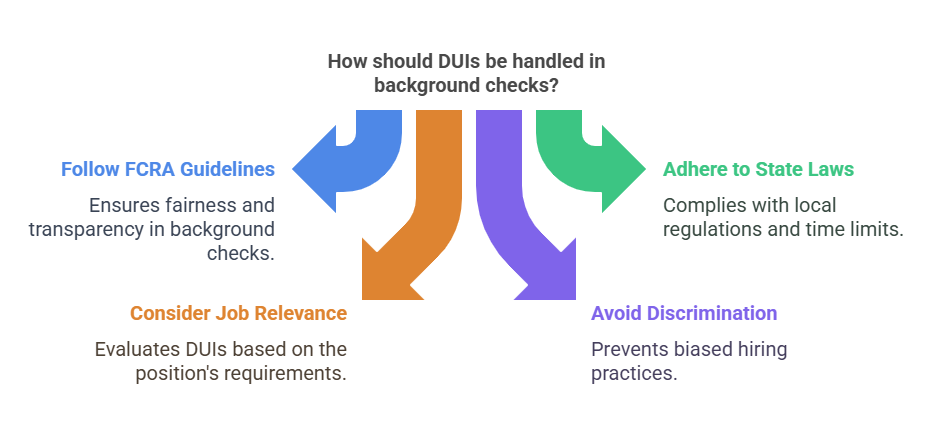How to Understand DUI Impact on Job Background Checks

Understanding DUI and Background Checks
Driving Under the Influence (DUI) is a serious offense that can have long-lasting implications for individuals, especially when it comes to employment opportunities. This section explores what a DUI is, how it is categorized, and its relationship with background checks. We’ll also discuss how the type of job or industry can impact how a DUI is perceived during the hiring process.
What is a DUI?

A DUI (Driving Under the Influence) occurs when an individual operates a vehicle while impaired by alcohol, drugs, or other substances that affect their ability to drive safely. The legal blood alcohol concentration (BAC) limit varies by jurisdiction but is typically 0.08% for most drivers in the United States.
Classification of DUIs:
- Misdemeanor DUI: In most cases, a first-time DUI is classified as a misdemeanor. However, factors such as high BAC levels, accidents causing injury, or the presence of minors in the vehicle can elevate it to a felony.
- Felony DUI: Repeat offenses, DUIs resulting in severe injury or death, or those involving aggravating circumstances are usually classified as felonies.
What is a Background Check?
A background check is a screening process employers use to verify an applicant’s history, including criminal records, employment history, education, and other relevant information. Background checks are conducted to ensure candidates meet job requirements and to mitigate risks associated with hiring.
Why Employers Conduct Background Checks:
- Risk Mitigation: To ensure workplace safety and reduce liability risks.
- Compliance: Certain industries have regulatory requirements for background checks.
- Trust and Reputation: Employers want to hire candidates who align with their values and policies.
Do DUIs Show Up on Background Checks?
Yes, DUI typically appear on background checks, but the details depend on the type of check conducted and the jurisdiction. Here are some key factors to consider:
- Criminal Background Checks:
- DUIs are classified as either misdemeanors or felonies, making them part of a person’s criminal record.
- First-time DUIs often appear as misdemeanors, while repeat offenses or aggravated cases may appear as felonies.
- Motor Vehicle Record (MVR) Checks:
- DUIs are recorded on driving records, which employers often review for positions requiring driving responsibilities.
- In some states, DUIs remain on driving records for a set period, such as 5 to 10 years, while others may retain them indefinitely.
- Federal Background Checks:
- For positions requiring federal clearance or high-security jobs, DUIs may be flagged regardless of their age or severity.
Industries Where DUIs Have a Significant Impact

The impact of a DUI on employment opportunities varies across industries. In some fields, a DUI is viewed as a red flag due to safety and regulatory concerns.
- Transportation and Logistics:
- Roles involving commercial driving (e.g., truck drivers, delivery drivers) are heavily regulated, and a DUI can disqualify candidates from obtaining or retaining a Commercial Driver’s License (CDL).
- Employers in these industries prioritize safe driving records, making DUIs a critical concern.
- Healthcare and Public Safety:
- Nurses, doctors, and emergency responders are held to high ethical standards. A DUI conviction could raise questions about judgment and reliability.
- Law enforcement officers and firefighters may face disqualification or internal disciplinary action if a DUI is discovered.
- Education and Childcare:
- Schools, daycare centers, and other institutions working with children often conduct stringent background checks. A DUI may hinder employment due to concerns about responsibility and trustworthiness.
- Corporate and Office Roles:
- In non-driving roles, the impact of a DUI may be less significant. However, it could still raise concerns about behavior, especially if it is a recent conviction.
How DUIs Appear on Different Background Checks
Below is a summary of how DUIs may be reported on various types of background checks:
| Background Check Type | How DUIs Appear | Impact |
|---|---|---|
| Criminal Background Check | Shows as a misdemeanor or felony conviction, depending on severity and jurisdiction. | High for sensitive roles; moderate for general jobs. |
| Motor Vehicle Record (MVR) | Listed as a traffic violation, often with details about the offense date and penalties. | Critical for driving-related jobs. |
| Federal Background Check | May include DUIs as part of a comprehensive review for high-security or government positions. | Significant impact on roles requiring clearance. |
| Employment Verification | Does not typically reveal DUIs unless disclosed during interviews or referenced by employers. | Low unless driving is a core responsibility. |
Why Employers Care About DUIs
Employers consider DUIs during the hiring process for several reasons:
- Safety Concerns: A DUI indicates impaired judgment, which can be a liability in jobs requiring driving or public interaction.
- Legal Compliance: Some roles have strict requirements for clean driving or criminal records.
- Workplace Reputation: Employers may view a DUI as a reflection of a candidate’s reliability and decision-making skills.
How a DUI Affects Employment Opportunities
Driving Under the Influence (DUI) can significantly influence job prospects depending on the nature of the offense, the job role, and the industry. This section explores how a DUI affects employment opportunities across different types of positions, offers strategies to mitigate its impact, and highlights the importance of transparency in the hiring process.
How a DUI Influences Hiring Decisions

The impact of a DUI on employment decisions varies greatly based on the type of job, the industry, and how recently the offense occurred. Below are key areas where a DUI may have a significant effect:
1. Jobs Requiring Driving Responsibilities
For roles involving driving, a clean motor vehicle record is essential. Employers often check a candidate’s driving history to assess their ability to perform the job safely.
- Commercial Driving Roles:
DUIs can disqualify candidates from roles such as truck driving, delivery services, and rideshare positions. For those with a Commercial Driver’s License (CDL), a DUI may result in suspension or revocation of the license, further limiting employment opportunities. - Company Vehicle Use:
Even if the role is not exclusively driving-based, employers may be hesitant to hire someone with a DUI if the position requires occasional use of a company vehicle. Insurance companies may view employees with DUIs as high-risk, increasing premiums for the employer. - Transportation and Logistics Industries:
Federal regulations, such as those enforced by the Department of Transportation (DOT), mandate strict adherence to driving standards. A DUI violation can make candidates ineligible for many roles in this sector.
2. Roles Involving Public Trust or Security Clearance
Certain industries hold employees to high ethical standards and require a clean legal and criminal record.
- Healthcare:
A DUI may raise concerns about judgment and reliability, particularly for roles that involve patient care or operating medical equipment. - Law Enforcement and Public Safety:
Police officers, firefighters, and emergency responders are expected to uphold the law and demonstrate responsible behavior. A DUI conviction can damage credibility and result in disqualification from such roles. - Government and Security Clearance Roles:
Positions requiring federal clearance, such as government jobs or roles in defense and intelligence, involve thorough background checks. A DUI, especially if it’s recent or part of a pattern, can hinder eligibility.
3. General Employment in Non-Driving-Related Fields
In non-driving roles, the impact of a DUI largely depends on the employer’s policies, the severity of the offense, and whether the candidate discloses it.
- Small Businesses vs. Large Corporations:
Smaller businesses may have more flexible policies regarding DUIs, focusing on skills and experience over past mistakes. Larger corporations, on the other hand, may have strict background screening protocols that flag DUIs as part of their risk assessment process. - Time Since the DUI:
The recency of the offense plays a significant role. Employers may be more forgiving of a DUI that occurred several years ago, especially if the candidate has demonstrated behavioral improvements and a clean record since then.
Steps to Mitigate the Impact of a DUI
If you have a DUI on your record, there are proactive steps you can take to address employer concerns and improve your chances of securing a job.
1. Be Honest and Transparent
Transparency is crucial when dealing with a DUI on your record. If asked about your background during interviews, acknowledge the offense and provide context.
- How to Explain a DUI:
Focus on accountability and the steps you’ve taken to learn from the experience. For example:
“I made a mistake in the past, but I’ve taken responsibility and completed a rehabilitation program. Since then, I’ve committed to making better decisions and maintaining a clean record.” - Highlight Growth:
Employers value candidates who demonstrate personal growth and responsibility. If you’ve completed community service, counseling, or educational programs, mention these efforts.
2. Address the DUI Before It’s Brought Up
If the job requires a background check, consider informing the employer about the DUI upfront. This approach shows integrity and prevents surprises during the screening process.
3. Seek Expungement or Record Sealing
In some states, it’s possible to have a DUI expunged or sealed, meaning it will no longer appear on most background checks.
- Eligibility for Expungement:
Eligibility requirements vary by state but often depend on factors such as the severity of the offense, time since the conviction, and completion of probation. - Benefits of Expungement:
Expunging a DUI can make it easier to pass background checks and reduce stigma during the hiring process.
4. Focus on Your Strengths
When applying for jobs, emphasize your qualifications, skills, and accomplishments to shift the focus away from your DUI.
- Strong Resume and Cover Letter:
Tailor your resume to highlight relevant experience and achievements. Use your cover letter to showcase your enthusiasm for the role and your commitment to personal and professional growth. - Professional References:
Provide references who can vouch for your reliability and work ethic, reinforcing your suitability for the position.
5. Work with Trusted Background Check Providers
Employers often rely on professional background check providers to verify candidate information. Trusted companies, such as Exact Background Checks, ensure accuracy and compliance with legal standards, providing a fair assessment of a candidate’s history.
- For Candidates:
You can use Exact Background Checks to run a self-background check, ensuring you’re aware of what employers will see. - For Employers:
Reliable services like Exact Background Checks help employers make informed hiring decisions while adhering to legal requirements.
The Importance of Employer Perspective
Employers assess DUIs differently based on the role and industry, but most prioritize honesty and accountability. By being proactive, candidates can demonstrate their commitment to personal growth and reliability, mitigating the negative impact of a DUI on their job prospects.
Legal Considerations for DUIs in Background Checks

The treatment of DUIs in background checks is influenced by federal and state laws that govern how employers can use background information in hiring decisions. Understanding these legal frameworks is essential for both employers and candidates.
1. The Fair Credit Reporting Act (FCRA)
The FCRA regulates how employers can obtain and use background information, including DUIs, to ensure fairness and transparency.
- Disclosure and Consent:
Employers must inform candidates in writing and obtain their written consent before conducting a background check. This disclosure must be clear and separate from other hiring documents. - Adverse Action Requirements:
If an employer decides not to hire a candidate based on background check results, they must follow the adverse action process:- Provide a copy of the background report to the candidate.
- Include a summary of the candidate’s rights under the FCRA.
- Allow the candidate time to dispute inaccuracies before making a final decision.
2. State Laws and Time Limits
State laws can vary significantly in terms of how DUIs are reported and used in hiring decisions.
- Ban the Box Laws:
Some states and cities have implemented “ban the box” laws, which prohibit employers from asking about criminal history on job applications. This allows candidates to be evaluated on their qualifications before disclosing any offenses. - Lookback Periods:
States often impose time limits on how far back DUIs and other offenses can be reported on background checks. For example:- In California, most offenses can only be reported for up to 7 years.
- In Texas, there is no time limit for reporting convictions, but arrests without convictions are typically excluded after 7 years.
- Expungement and Record Sealing:
Expunging or sealing a DUI can prevent it from appearing on most background checks, depending on state laws. However, employers in certain industries (e.g., healthcare, finance) may still have access to sealed records.
3. Employer Responsibilities
Employers must handle background checks responsibly to avoid legal liabilities.
- Relevance to the Job:
Employers should ensure that the use of background check information is relevant to the position. For instance, a DUI may be more relevant for a driving position than for an office role. - Avoiding Discrimination:
Employers must avoid discriminatory practices when evaluating candidates with DUIs. The Equal Employment Opportunity Commission (EEOC) advises against policies that disproportionately exclude certain groups unless the policy is job-related and consistent with business necessity.
Frequently Asked Questions (FAQs)
Below are some of the most common questions about DUIs and background checks, along with detailed answers.
Can a DUI from several years ago still appear on a background check?
Yes, a DUI can appear on a background check depending on the state’s reporting laws and the type of check conducted. In many states, DUIs are reportable for up to 7 years. However, if the DUI was expunged or sealed, it may no longer show up on most background reports.
Will a DUI disqualify me from getting a job?
It depends on the job and the employer. For roles requiring driving or a high level of public trust, a DUI may be a disqualifier. However, for non-driving positions, many employers are willing to consider candidates with DUIs, especially if the offense is older or the candidate has taken steps to rehabilitate.
How can I explain a DUI to a potential employer?
Be honest and transparent about the incident. Acknowledge the mistake, emphasize the steps you’ve taken to learn from it, and focus on your qualifications and strengths. For example:
“I take full responsibility for my past actions and have taken steps to ensure it doesn’t happen again. I’ve since completed a rehabilitation program and maintained a clean record. I’m confident that my skills and dedication make me a great fit for this role.”
Do DUIs affect non-driving-related jobs?
While a DUI is more likely to impact driving-related positions, it can still be a concern for non-driving jobs. Employers may view a DUI as a reflection of judgment or reliability. However, many employers are open to hiring candidates who demonstrate accountability and personal growth.
Can a DUI be removed from my record?
In some cases, yes. Many states allow expungement or sealing of DUIs under certain conditions, such as completing probation or a rehabilitation program. Once expunged, the DUI will typically not appear on most background checks, although exceptions may apply for certain industries or positions.
Can a DUI from several years ago still appear on a background check?
Yes, a DUI can appear on a background check depending on the state’s reporting laws and the type of check conducted. In many states, DUIs are reportable for up to 7 years. However, if the DUI was expunged or sealed, it may no longer show up on most background reports.
Will a DUI disqualify me from getting a job?
It depends on the job and the employer. For roles requiring driving or a high level of public trust, a DUI may be a disqualifier. However, for non-driving positions, many employers are willing to consider candidates with DUIs, especially if the offense is older or the candidate has taken steps to rehabilitate.
How can I explain a DUI to a potential employer?
Be honest and transparent about the incident. Acknowledge the mistake, emphasize the steps you’ve taken to learn from it, and focus on your qualifications and strengths. For example:
“I take full responsibility for my past actions and have taken steps to ensure it doesn’t happen again. I’ve since completed a rehabilitation program and maintained a clean record. I’m confident that my skills and dedication make me a great fit for this role.”
Do DUIs affect non-driving-related jobs?
While a DUI is more likely to impact driving-related positions, it can still be a concern for non-driving jobs. Employers may view a DUI as a reflection of judgment or reliability. However, many employers are open to hiring candidates who demonstrate accountability and personal growth.
Can a DUI be removed from my record?
In some cases, yes. Many states allow expungement or sealing of DUIs under certain conditions, such as completing probation or a rehabilitation program. Once expunged, the DUI will typically not appear on most background checks, although exceptions may apply for certain industries or positions.
Conclusion
A DUI on your record can present challenges during the job application process, but its impact largely depends on factors such as the type of job, the industry, and the steps you’ve taken to address the issue. Employers value honesty, accountability, and evidence of personal growth, which can help mitigate concerns about a past DUI.
Key takeaways include:
- DUIs often appear on background checks, but their relevance varies based on the role and industry.
- Candidates can take proactive steps, such as being transparent, seeking expungement, and emphasizing their qualifications, to improve their job prospects.
- Employers must comply with legal requirements, including the FCRA, to ensure fairness and transparency in the hiring process.
Whether you’re a job seeker with a DUI on your record or an employer conducting background checks, working with trusted providers like Exact Background Checks ensures accurate, reliable, and compliant screening. By focusing on transparency, fairness, and personal accountability, both candidates and employers can navigate the complexities of DUIs in background checks effectively.



